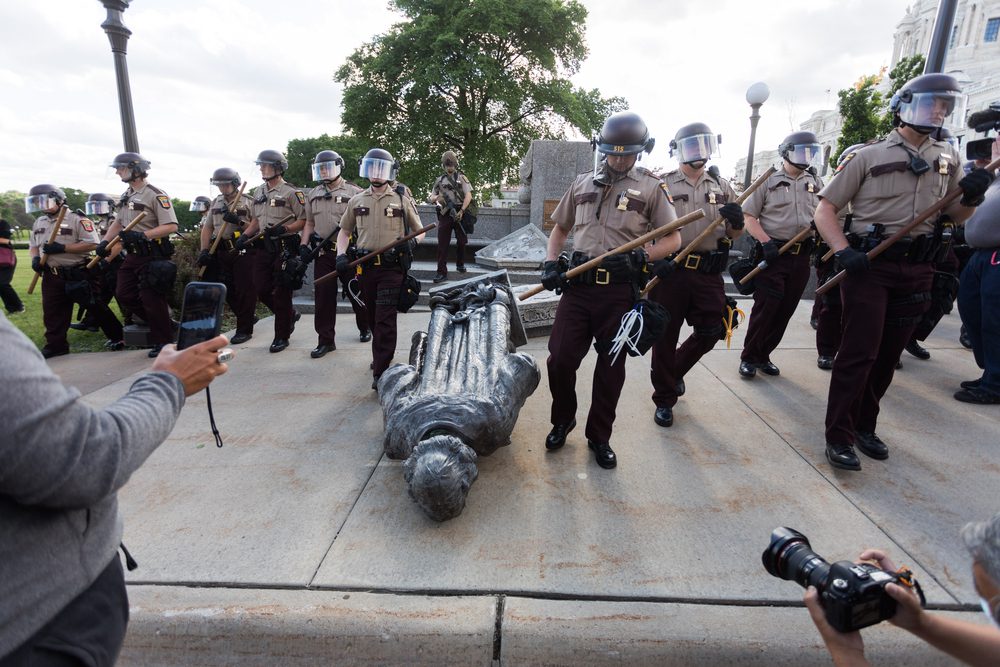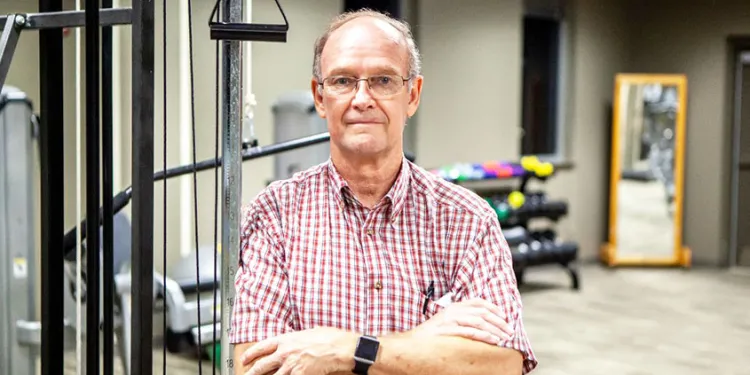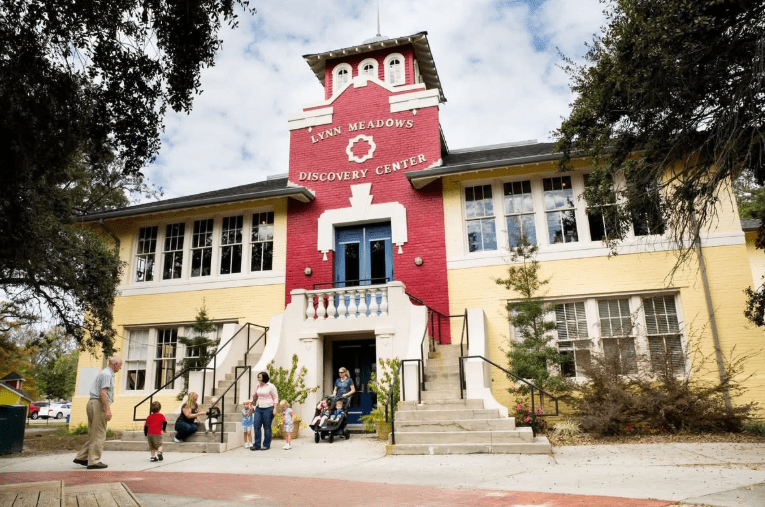
St. Paul, MN - June 10, 2020: Members of AIM Twin Cities and other Native community residents topple the statue of Christopher Columbus located on the Minnesota State Capitol grounds. (Ben Hovland)
This week, Americans celebrated Columbus Day. The holiday commemorates the trans-Atlantic voyages of Italian explorer Christopher Columbus to ‘The New World’ more than 500 years ago. Like most everything these days, Columbus, and in a broader sense, European settlement of the Americas, has become a flashpoint in a tiresome culture war.
Growing up, I learned in school that “in 1492, Columbus sailed the ocean blue.” But not everyone views the explorer’s trans-Altantic voyages to the Caribbean in such idyllic terms. Video resurfaced this week of Vice President, and Democratic nominee for president, Kamala Harris celebrating the rival holiday of ‘Indigenous Peoples Day’ with some harsh criticism of European settlers.
“Those explorers ushered in a wave of devastation for Tribal nations – perpetrating violence, stealing land and spreading disease,” Harris said. “We must not shy away from this shameful past, and we must shed light on it and do everything we can to address the impact of the past on Native communities today.”
History is complicated because people are complicated. There’s only ever been one perfect person to walk the earth, and it was not Christopher Columbus. But modern day efforts to vilify European settlers to the Americas are misguided in at least three ways.
First, they seek to impose upon people who lived hundreds of years ago our current understanding of morality, instead of judging figures by the common culture of the time. We are fortunate to live in an era with relative peace and stability, but most of human history is replete with exploration and conquest. There’s not a person alive today that does not have ancestors who were conquerors and ancestors who were conquered. (As an aside, there are things in modern culture that our distant ancestors would have found morally repugnant, and rightly so).
Second, it imposes modern standards of behavior selectively. Harris saying that Europeans ushered in devastation and violence presupposes that prior to their arrival, the inhabitants of the Americas were a peaceful, communal lot. But nothing could be farther from the truth. The indigenous populations, which many anthropologists believe crossed the Bering Strait on a land bridge from Asia, were conquering, enslaving, torturing, and killing each other long before Columbus sailed the ocean blue. These were warring tribes competing over territory and resources. It was a way of life, not something “ushered in” by bloodthirsty Europeans.
Just five years prior to Columbus arrival, the Aztecs in modern day Mexico celebrated the consecration of the Great Pyramid of Tenochtitlan by sacrificing as many as 84,000 of its own people (some historians now believe this figure to be an embellishment and suggest the real number to be 4,000). The sacrifices would climb the pyramid, have their hearts cut out of their chest, and then be pushed back down, where family members would eat parts of them.
And yet, there are no proclamations by politicians about the barbarous nature of this indigenous population. Acts such of this are instead contextualized as sincerely held religious beliefs and part of the culture at the time.
Finally, many criticisms of European settlers myopically focus on the injustices of the past, while ignoring the great many contributions made by those same explorers and settlers. For all of the self-loathing we do these days, it took extraordinary courage for Columbus and his men to make four trans-Atlantic voyages in the 15th Century.
Those trips established trade routes and ultimately settlement of ‘The New World’ that advanced civilization by hundreds, if not thousands, of years.
The ‘Columbian exchange’ connecting old world Europe to the Americas would bring to our shores almost all of today’s major livestock, including horses, cattle, pigs, sheep and goats. Crops such as wheat, rice, oats, and sugarcane were imported. Europeans brought with them iron tools and advanced weapons. Beasts of burden and tools allowed for the cultivation of the land in ways unknown to indigenous populations. Superior weapons allowed for both defense and expansion of territory.
But most importantly, these settlers brought ideas, institutions, and thousands of years of accumulated knowledge that in time would form the foundations of a nation — one that became the most powerful and prosperous in human history. Roads and cities were built. Written law enshrined. And America became an engine of innovation and beacon of freedom that persists to this day.
Acknowledging these contributions does not require overlooking historical injustices anymore than acknowledging historical injustices should involve overlooking the contributions. Doing one to the exclusion of the other is dishonest and wreaks of an agenda.
European explorers and settlers weren’t perfect, but they were pioneers. It’s okay to celebrate that and the fact that we are almost all far better off because those journeys were made. “European bad, non-European good” is a childish dichotomy misaligned with human nature and human history.











